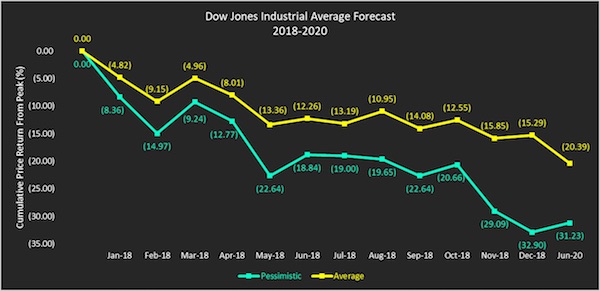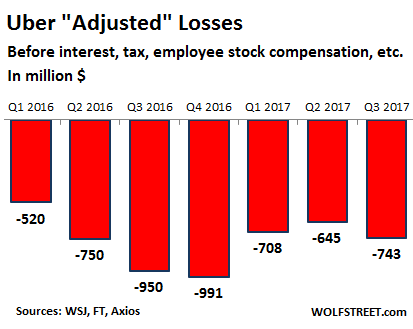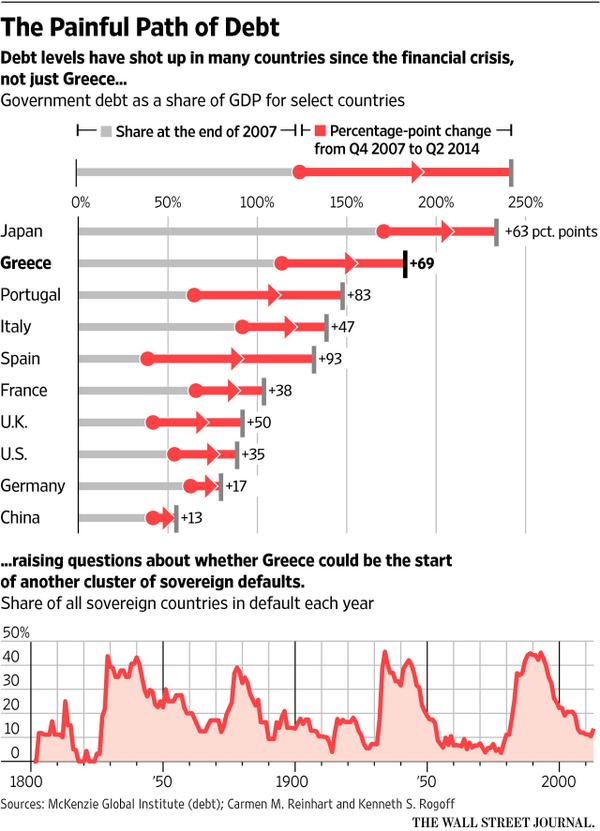
Takeuchi Seiho Bear in snow 1940

There is so much talk about McCarthy and the House Speaker contest, you’d almost think they’re trying to hide something behind it. I’ll leave that alone for now.



Bhakdi
https://twitter.com/i/status/1610685980671094784



VDB
https://twitter.com/i/status/1610443745014710278

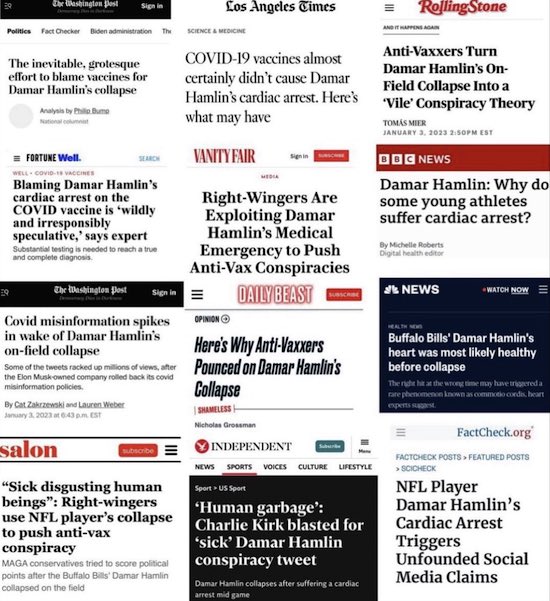

Cause unknown
Aubrey Marcus & Edward Dowd Get Emotional Discussing the Sudden Deaths Cataloged in Ed’s Book ‘Cause Unknown’
“This is 9/11 on steroids”@DowdEdward @AubreyMarcus pic.twitter.com/8wY8qI2Dcl
— Chief Nerd (@TheChiefNerd) January 5, 2023



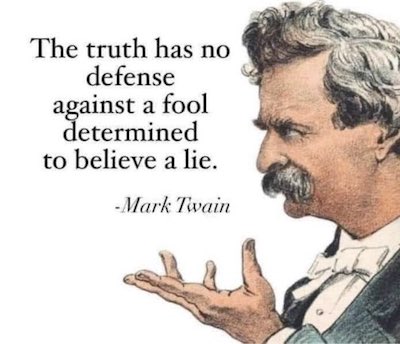


“..although Russian intelligence would have a fair idea of the location of NATO officers conducting the Ukrainian operations, they have not been so far targeted.”
• US Climbs Escalation Ladder in Ukraine (Bhadrakumar)
In all probability, the message conveyed to Russian Foreign Minister Sergey Lavrov from his American counterpart Antony Blinken via Israel’s new foreign minister Eli Cohen concerned the Ukrainian missile attack on Makeyevka (Donetsk) on New Year Day at 12.02 am killing 89 Russian conscripts. Kiev claimed that up to 400 Russian soldiers might have been killed. Russian MOD has made a rare acknowledgment of scores of deaths — latest figure is 83. Moscow rarely releases figures for casualties in the war. The Russian statements stressed that US-made Himars missiles were used in the attack. The site was a “a temporary deployment facility” (a vocational school temporarily used as barracks for scores of recently mobilised troops sent by Moscow.
The incident sparked renewed public criticism over the state of Russia’s military and the decision to use civilian infrastructure to house soldiers. The First Deputy Head of the Main Military-Political Department of the Russian Armed Forces Lieutenant General Sergey Sevryukov told reporters: “It has already become obvious at present that the main cause of the occurrence was activation and large-scale use, contrary to the ban, of personal phones by personnel within the reach of enemy’s destruction means. This factor enabled the enemy to take the bearing and determine coordinates of servicemen location to deliver a missile strike. Required measures are being taken at present to exclude such tragic incidents in the future.” Apparently, blame game has begun — that the “main cause” of the tragedy was the unruly behaviour of soldiers who used mobile phones on the warfront. But there is going to be consequences.
Public pressure may increase demanding maximum use of force to end the war quickly. There is always the danger of escalation if certain unwritten, unspoken red lines in the conduct of the war are crossed. It is entirely conceivable that there could be Cold-War style “strategic deconfliction” parameters worked out between the general staff in Moscow and the Pentagon aimed at avoiding miscalculation or any set of actions (by either side) that could lead to unnecessary conflict. The US and Russian forces have been operating in Syria for years and a communications line, used daily, has helped the two sides avoid direct conflict.
Now, the New Year attack comes as the Biden administration is trying to provide billions in weaponry to Ukraine while also claiming that avoiding a direct clash with Russia has been a top US priority. At any rate, although Russian intelligence would have a fair idea of the location of NATO officers conducting the Ukrainian operations, they have not been so far targeted. That is why, the Russian MOD’s decision on Monday to highlight that US-supplied Himars missiles have killed scores of Russian soldiers on Sunday night would have caused some uneasiness in Washington. The big question is whether Moscow will also now go up the escalation ladder and directly target American military personnel deployed in Ukraine.
Of course, any killing of American military personnel in Ukraine will make very damaging headlines in the US news cycle for the Biden Administration. So far, there has not been a single instance of a body bag arriving from Ukraine. The Russian generals probably ensured that.

The US will let other countries’ troops do the combat.
• U.S. Forces in Europe Prepare for War With Russia (Celente)
U.S. troops stationed in Eastern Europe are preparing for all-out war and have been performing war simulations against Russian forces, according to a new report. The U.S.’s 101st Airborne Division deployed to Romania for the first time in 80 years. The “Screaming Eagles” as a light infantry force that is trained to take to any battlefield and fight within hours. The U.S. Army said in a statement in June that the division arrived at the Mihail Kogalniceanu Airbase to “reinforce NATO’s eastern flank and engage in multinational exercises with partners across the European continent in order to reassure allies and deter further Russian aggression.” “Being here, so close to that fight (in Ukraine), is exactly where the 101st Airborne Division is destined to be,” said Maj. Gen. JP McGee, 101st commander, during the livestreamed ceremony, Stars & Stripes reported at the time.
U.S. infantry arrived at a military base in Estonia last month to train allied troops and secure Europe’s eastern flank amid the Ukraine War. The troops are stationed at the Taara base in Võru and will train alongside Estonia forces. The base is about 20 miles from the Russian border. The troops in Romania have been training Ukrainian forces on advanced weapons systems that are being shipped into Kyiv, The New York Times reported. “You get a chance to train and operate on the very ground that you might have to defend,” McGee told the paper. AntiWar.org noted: “The Times report stressed that the 101st Airborne deployment was about deterrence. If the US were preparing to enter the war directly, it would likely send significantly more troops. While in Romania, the soldiers are also participating in coastal defense drills, and Romanian troops are practicing firing HIMARS rocket launch systems into the Black Sea.”
The Pentagon has said it is sending U.S. troops into Ukraine, under the guise that they are going there not to fight, but instead just to track the billions of dollars of weapons the West sent into the country. NBC News, citing three senior U.S. officials, reported last month that there is discussion in the White House about sending additional troops into the country to help the U.S. track weapons. The report said there are already U.S. troops in the country, again, under the guise that all they are doing is monitoring weapons. The New York Times reported in June that Ukraine is filled with CIA officers and special forces from the West. The report said the CIA personnel have been working out of Kyiv. We reported in October that there are currently more U.S. special forces and CIA agents in Ukraine today than there were at the beginning of the war.

“No mere recital from the actor, but earnest loss he must reveal..”
• The Russia-Ukraine Conflict Is Existential For Both Sides (Lukyanov)
The year 2022 turned everything inside out. With the benefit of hindsight – having overcome the shock everyone experienced in February, when Russian troops entered Ukraine – it’s not that difficult to explain how it came about. And even how it could not have been otherwise. Also, after a full ten months, it is pretty clear why the campaign did not go as planned. The latter is probably even a positive thing. The façade crumbled, exposing the frame. It was not quite as imagined. Some structures thought to be load-bearing had surprisingly sagged. Others, suspected of being unreliable, stood up stronger than had been thought. There are fewer illusions, though the information machine works to maintain them. But this is basically by inertia. The need for a radical renewal of the architecture is obvious.
The Ukrainian landmine was laid when the Soviet Union collapsed. The grim realists knew from the outset that the separation of what had long been a single space – where it was almost impossible to draw a natural boundary – would not be possible. In Russia, as at the bottom of a peat bog, disagreement with the loss of territories of defining cultural and historical significance was smoldering. In Ukraine, radical nationalists lamented that independence came ‘cost-free’ and believed that nations are born in wars. The extremes have now converged. Russia took up the Ukrainian issue when it became central to the world order. Although it may have been the other way round – it became so important because Russia tried to solve it. The tipping point was probably former President Viktor Yanukovich’s decision on whether to tilt West (to the EU) or East (towards the EEU), back in 2013.
The two divergent positions are now firmly entwined. And our country faces fierce resistance, because of the desire of the neighboring state to defend its identity, and the readiness of Western grandees to sacrifice this very nation to put Moscow in its place. However, Russia voluntarily submitted itself to this stress test, and its future depends on the outcome. At this juncture, it is no longer possible to reverse course. Furthermore, the uncertainty of the objectives of the ‘special military operation’ reflects the overarching nature of the challenge. The goals won’t be fully understood until the end, because they won’t be apparent until that comes to pass. The peculiarity of the modern world is that there is no such thing as an outright victory. This is the main paradox here – war has returned as a form of state relations, but it does not involve a clear outcome in the classical sense.
This dramatically complicates the nature of competition and makes it inherently non-linear. And its result is thus ‘hybrid’, with the decisive factor the endurance and resilience of states under the volley of different blows that abound in the unpredictable international environment. The Russia-Ukraine conflict has become a clash for self-determination for Russia as much as for Ukraine. In the literal sense: as in who we are. While Ukraine’s self-determination is similar to examples from the history of nation-state building, in Russia the situation is far more complex. Many of the concepts from the past will not pass the test of this collision. Outright archaic positions are unsustainable in today’s global conditions, even if it seems that the world has turned backwards. But postmodern imitation will no longer work either. It’s too real and tragic. “No mere recital from the actor, but earnest loss he must reveal,” to quote the writer Boris Pasternak, in his poem ‘I Should Have Known that this Would Happen’.

“We are rewarding Russia for its war against us!”
Russia has no war vs the EU. You’re just making that up.
• Effect Of EU Sanctions On Moscow Is ‘Less Than Zero’ – Verhofstadt (RT)
The EU’s sanctions on Russia over the Ukraine conflict have been a complete failure, Belgian member of the European Parliament Guy Verhofstadt said on Monday. He added that the EU was only “rewarding” Russia by increasing imports from the country. Writing on Twitter, Verhofstadt, who served as Belgian prime minister from 1999 to 2008 and has been an MEP since 2009, claimed that the effect of the EU’s nine packages of sanctions on Moscow “is less than 0.” The former PM said that in the bloc’s attempts to punish Russia, it has achieved the opposite result. “We are rewarding Russia for its war against us!” Verhofstadt also posted a chart titled ‘Still Filling Putin’s Coffers’, showing Russia-EU trade from February to August 2022. The graphic, which cites Eurostat data, shows that most EU member states, including Germany, France, Italy, and Poland, significantly increased imports from Russia. In total, only seven EU members were buying less from the country.
Following the start of Russia’s military operation in Ukraine, the EU imposed unprecedented sanctions on Moscow, targeting entire sectors of the economy. In December, the bloc, along with the G7 countries and Australia, introduced a price cap on Russian seaborne oil, setting it at $60 per barrel. In response, last week, President Vladimir Putin signed a decree banning the supply of oil and petroleum products from Russia to countries which apply these restrictions. The sanctions on Russia have exacerbated the bloc’s energy crisis, causing fuel prices and the cost of living to soar. This has prompted protests against the sanctions policy in several EU countries. In December, a demonstration organized by the right-wing Patriots party took place in Paris against the government’s stance on Russia and France’s membership in NATO. In his New Year’s address, Putin said that the West’s “full-blown sanctions war” against Moscow has largely failed to undermine the economy.
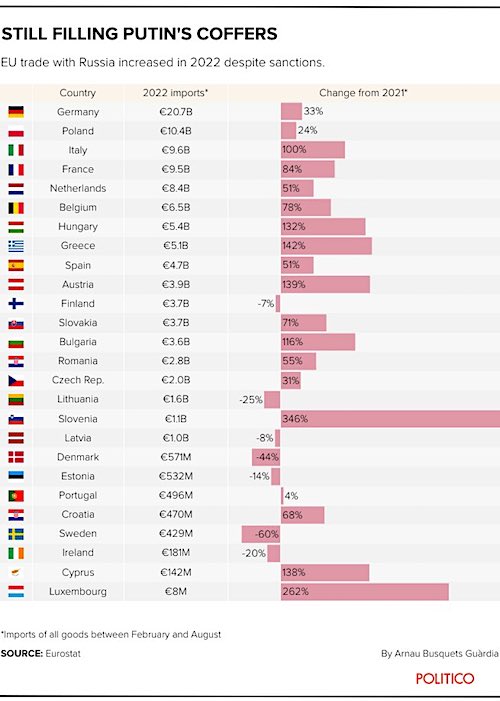

“..using a missile against a UAV costs up to seven times more than the drone itself..”
• Russian Drones Far Cheaper Than Ukrainian Air Defenses – NYT (RT)
The fact that the smaller kamikaze drones used by Russia are much cheaper than the Ukrainian air defense missiles used against them is creating problems for Kiev and its Western backers, the New York Times has acknowledged. In an article on Tuesday, the paper didn’t question Kiev’s claims that most of the UAVs launched by Russia are being shot down, but pointed out that even in this case Ukrainian air defense stocks were being exhausted. “How long can Ukraine sustain its effort when many of its defensive measures cost far more than the drones do?” the NYT wondered. In addition to trying to destroy the incoming drones with anti-aircraft guns and small-arms fire, Kiev’s forces have “also relied heavily on missiles fired from warplanes and the ground,” which are very expensive, it wrote.
The paper cited the head of the Ukrainian consultancy Molfar, Artem Starosiek, who claimed that using a missile against a UAV costs up to seven times more than the drone itself. The drones that Russia uses are priced at around $20,000 per unit, while a surface-to-air missile from Ukraine’s arsenal ranges from $140,000 for a Soviet-era S-300 to $500,000 for a US-supplied NASAM system, he said. The article claims that the drones used by Russia in Ukraine are Shahed-136s, supplied by Iran. This claim has been denied by both Moscow and Tehran on many occasions. The Russian Defense Ministry insists that its Geran-2 drones are domestically made, just like all the other hardware used in the military operation against Kiev. The Iranian Foreign Ministry has only confirmed sending a small batch of drones to Russia before the outbreak of the conflict with Ukraine, stressing that no new deliveries have been made since then.
Starosiek nevertheless defended Kiev’s strategy, arguing that it still “costs far less to shoot down a drone than to repair a damaged or destroyed power station.” However, the NYT warned that the price difference between drones and air defenses was “an imbalance that could over time favor Russia, costing Ukraine and its allies dearly, some analysts say.” According to estimations by Molfar, Russia has targeted Ukrainian military infrastructure and energy systems with some 600 UAVs since September, when they began to be used more widely. Russia drastically ramped up its strikes against Ukrainian infrastructure in early October in response to repeated Ukrainian sabotage on Russian soil, including the bombing of the Crimean Bridge, which Moscow blamed on Kiev. Although the attack was widely cheered by top Ukrainian officials, Kiev has denied any involvement.

“I revolt and protest this intellectual dishonesty in the Ukraine crisis because the triggers of the war are the Americans and NATO..”
• US Makes Europeans Suffer – De Gaulle’s Grandson (RT)
The US is making Europeans suffer by fueling the Ukraine conflict and waging a pre-planned economic war against Russia, Pierre de Gaulle, the grandson of former French President Charles de Gaulle, has said. After leading the French resistance against the Nazi occupation during World War II, Charles de Gaulle founded the modern French political system and served as president from 1959 to 1969. His grandson, a strategy and corporate finance consultant, said he believes that the Ukraine conflict was incited by the West. “I revolt and protest this intellectual dishonesty in the Ukraine crisis because the triggers of the war are the Americans and NATO,” Pierre de Gaulle told the Franco-Russian Dialogue Association last week. “The United States, unfortunately, continues the military escalation, making not only the Ukrainian population suffer, but the European population as well.”
The scale and the number of sanctions show that all of this was organized a long time in advance. It is an economic war, from which the Americans are the beneficiaries. The Americans sell their gas to Europeans for a price four to seven times higher than they do in their own country. The Western sanctions imposed on Russian fossil fuel exports have exacerbated the financial and energy crisis in Europe, making “everyone suffer in their daily lives,” de Gaulle said. He also accused former German Chancellor Angela Merkel of “knowingly contributing” to the conflict by “authorizing the Ukrainian nationalist expansion,” which came after the 2014 pro-Western coup in Kiev. The government that came to power that year sought to “annihilate Russian culture… and the ability to speak Russian” in the largely Russophone Donbass, he said.
The Donetsk and Lugansk People’s Republics (DPR and LPR) broke away from Ukraine following the 2014 coup. The 2014-15 Minsk accords, brokered by Germany, France, and Russia, were designed to provide a peaceful reintegration of the rebellious territories into Ukraine. Russian President Vladimir Putin cited the need to protect the people of Donbass and Kiev’s failure to implement the Minsk peace accords as reasons for launching the military operation in Ukraine in late February. The DPR and LPR, along with two other former Ukrainian territories, joined Russia after voting overwhelmingly in favor of the move in September. Merkel, as well as former Ukrainian President Pyotr Poroshenko, stated last year that Kiev had used the accords to buy time in order to rebuild its military and economy. Ukraine has adopted several laws since 2014 that restrict the use of the Russian language in the public sphere, including education and the media.

“..Xi Jinping’s meeting with the member states of the Gulf Cooperation Council (GCC) in December marked “the birth of the petroyuan..”
• China Setting New World Energy Order – Zoltan Pozsar (RT)
The global energy order is being reshaped as deepening energy ties between China and the Middle East signifies the rise of the petroyuan, which could challenge the petrodollar, the Financial Times reported on Wednesday, citing Credit Suisse analyst Zoltan Pozsar. According to Pozsar, China has been boosting purchases of crude and liquefied natural gas (LNG) from Iran, Venezuela, Russia, and some African nations using its national currency. However, President Xi Jinping’s meeting with the member states of the Gulf Cooperation Council (GCC) in December marked “the birth of the petroyuan,” he said in a note to clients. At the summit, the Chinese leader confirmed that Beijing is ready to make energy purchases in yuan instead of the US dollar with GCC countries.
“China wants to rewrite the rules of the global energy market,” Pozsar said, adding that the move to de-dollarize the oil and gas trade is backed members of the BRICS alliance (Brazil, Russia, India, China, and South Africa). According to the Credit Suisse analyst, the steps towards ditching the greenback in the energy trade have intensified in the wake of the sweeping sanctions imposed by Western nations on Russia, one of the world’s major energy producers and exporters, in response to the military operation in Ukraine. Pozsar added that dollar foreign exchange reserves were militarized in the sanctions war, making the use of the currency unsafe for major exporters and importers of oil, gas, and other commodities.
Cooperation between China and the GCC may potentially involve joint exploration and production in places such as the South China Sea, as well as investment in refineries, chemicals, and plastics. Pozsar said that implementing all of these projects in the yuan would mark a massive shift in the global energy trade. He added that even if it does not replace the dollar as a reserve currency, trading in the petroyuan will nevertheless come with significant economic and financial implications for policymakers and investors.

“Twitter was flooded with demands from so many officials, departments and agencies, they were confused and overworked. If action wasn’t taken promptly, followup emails quickly appeared, asking if action had yet been taken, and if not, why..”
• US Spies Used False Russiagate Claims To Bring Twitter To Heel (Livshitz)
In a pair of blockbuster #TwitterFiles threads, this week, journalist Matt Taibbi has blown open, even wider, the media giant’s concerning collusion with the US national security state. The former Rolling Stone writer exposed how political pressure from the US Democratic Party very effectively forced the company to endorse the lie that its platform was extensively weaponized by Russia, with hugely significant consequences. The first, boldly titled ‘How Twitter Let the Intelligence Community In’, documents how in August 2017, despite dubious allegations that Russian bots and trolls were responsible for the election of Donald Trump in the mainstream media reaching fever pitch, Twitter’s hierarchy knew its platform wasn’t riddled with malign Kremlin-directed actors. [..]
After years of bending over backwards to placate the Democratic establishment, Twitter attempted to push back. Over a series of internal emails, various executives spelled out deep concerns about allowing the Center any influence over the platform, and initially rejected an FBI request for the organization to be included in the moderation club’s regular ‘industry call’. It was felt the Center’s involvement would pose “major risks … especially as the election heats up.” Eventually, the FBI offered a compromise – the CIA, NSA, and Global Engagement Center would be able to simply listen to the industry calls, but wouldn’t be active participants. Twitter relented, a decision its higher-ups seem to have quickly come to regret. Before long, the social network was being bombarded with requests to censor content and ban users from every US government body under the sun.
This extended to US government officials asking for users to be banned because they didn’t personally like an individual in question. Notorious House Intelligence Committee chief Adam Schiff, a Democrat, once asked Twitter to ban journalist Paul Sperry, due to his critical reporting on the Committee’s work. After initially refusing, Sperry was later suspended. Almost every other request was granted immediately, even those from the Global Engagement Center. This included demands to ban independent media outlets falsely claimed to be “GRU-controlled” and linked “to the Russian government.” In one email, a former CIA staffer remarked that Twitter would soon be unable to deny a single request. “Our window on that is closing,” they said.
In the weeks before the 2020 Presidential election, Twitter was flooded with demands from so many officials, departments and agencies, they were confused and overworked. If action wasn’t taken promptly, followup emails quickly appeared, asking if action had yet been taken, and if not, why, and when it would be. In one request, an FBI official even apologized “in advance for your workload.” Once, a no doubt exhausted senior attorney at the social network complained internally, “my inbox is really f***ed up at this point.” Previous #TwitterFiles threads exposed how the FBI paid the social network $3 million to process its requests. Based on the most recent disclosures, it’s clear the company and its staff were significantly underpaid for their efforts. Future releases promise yet further bombshell revelations, but the long-hidden truths divulged so far should prompt every Twitter user to reflect how the site for many years in secret operated as an effective wing of the US intelligence – and may well still do so.
Tucker Russia
.@TuckerCarlson: "Blaming Russia turned out to be a very useful political tool…Before long, it became the default response for every perceived disaster in Washington."
"RUSSIA became a pretext for…censorship in this country." pic.twitter.com/8Zymt4ivrA
— Daily Caller (@DailyCaller) January 5, 2023

He should disappear.
• Schiff Asked Twitter to Censor Paul Sperry Over Impeachment Whistleblower (BB)
House Intelligence Committee chair Rep. Adam Schiff (D-CA) pressured Twitter to censor the account of Paul Sperry, an investigative journalist who first published the name of the so-called impeachment “whistleblower.” In September 2019, Schiff announced that his committee had reached an agreement with the “whistleblower,” who allegedly filed a complaint about President Donald Trump’s July 2019 phone call with Ukrainian President Volodymyr Zelensky, to testify in his inquiry, which became the impeachment investigation. But Schiff never produced the whistleblower and later claimed, falsely, that the whistleblower had a “right” to anonymity. Schiff also lied about his contact with the “whistleblower,” first claiming that his committee had never spoken to the whistleblower, then admitting — after a New York Times report to the contrary — that they had done so.
Later, Sperry published an article at RealClearInvestigations identifying the “whistleblower” as a CIA analyst named Eric Ciaramella, who had worked at the Trump White House before returning to the CIA. Sperry also published other articles identifying links between Schiff’s committee and aides who had worked at the Trump White House and who had been “holdovers” from the Obama administration. The media and the tech industry suppressed the name of the whistleblower, and Schiff refused to allow Republicans to ask questions about the whistleblower during the impeachment investigation. Even Chief Justice John Roberts played along, censoring a question from Sen. Rand Paul (R-KY) during the Senate impeachment trial about the whistleblower.
On Tuesday, in the latest installment of the “Twitter files,” investigative journalist Matt Taibbi produced email evidence showing that Schiff’s office had asked Twitter, in writing, to censor Sperry after the November 2020 election, claiming (without evidence) that Sperry had spread “QAnon conspiracies” on the platform. Sperry told the New York Post Tuesday that Schiff’s claims were false and that he had never promoted QAnon: In an email Tuesday, Sperry told The Post, “I have never promoted any ‘QAnon conspiracies.’ Ever. Not on Twitter. Not anywhere.” “Schiff was just angry I outed his impeachment whistleblower and tried to get me banned,” he said. “I challenge Schiff to produce evidence to back up his defamatory remarks to Twitter.” Sperry also said, “This is a scurrilous smear, but par for the course for the unscrupulous Chairman Schiff.”

Library.
• Capsule Summaries of all Twitter Files Threads (Taibbi)
It’s January 4th, 2023, which means Twitter Files stories have been coming out for over a month. Because these are weedsy tales, and may be hard to follow if you haven’t from the beginning, I’ve written up capsule summaries of each of the threads by all of the Twitter Files reporters, and added links to the threads and accounts of each. At the end, in response to some readers (especially foreign ones) who’ve found some of the alphabet-soup government agency names confusing, I’ve included a brief glossary of terms to help as well.

Masks.
• Breathing Trouble (Bardi/Walach)
Just like smoking a single cigarette never killed anyone, wearing a face mask for a few hours or a few days does not cause irreversible damage either. But the immediate short-term physiological effects are detectable: A recent study led by Pritam Sukul, senior medical scientist at the University Medicine Rostock in Germany, found masks to cause hypercarbia (high concentration of CO2 in the blood), arterial oxygen decline, blood pressure fluctuations, and concomitant physiological and metabolic effects. On a time scale of weeks or months, these effects appear to be reversible. But how can we know what can happen to people who wear masks for several hours a day for several years? Will we have to wait for decades before concluding that masks are bad for people s health, as was the case with cigarettes?
Not necessarily, for we are able to assess face masks in terms of the air quality breathed by the wearers. One important parameter for air quality is CO2 concentration. Over the years, a lot of data has been accumulated in this field from miners, astronauts, submariners, and other people exposed to high concentrations of CO2 . Measurable negative effects on mental alertness already occur at CO2 concentrations over 600 parts per million (ppm), which is only slightly higher than the average concentration in open air (a little more than 400 ppm). Values higher than 1,000-2,000 ppm are not recommended for living spaces, especially for children and pregnant women. 5,000 ppm is the commonly accepted limit in working environments or in submarines and spaceships. Concentrations in the range of 10,000-20,000 ppm are not immediately life-threatening but can only be withstood for short periods.
Even higher concentrations may lead to loss of consciousness and death. So what kind of CO2 concentration are people exposed to when they wear a face mask? Measuring the concentration of CO2 inside the small volume of a face mask while it is being used poses practical problems, and there are no standardised methods and procedures to evaluate this. Nevertheless, during the past few years, several papers dealing with this subject were published. Some of these papers were criticised, but often baselessly. For instance, some fact checkers claimed that the same amount of CO2 could be found without face masks in exhaled breath. This is true, but trivial. The studies mentioned above measured the amount of CO2 in the inhaled air under face masks; the fact checkers measured the air exhaled. Other fact checkers provided a priori statements by experts, including a sports reporter.

“..79% of respondents think their country should “stand up for Swedish laws” in the face of Türkiye’s demands..”
• Swedes Adamant In Face Of Türkiye’s NATO Demands (RT)
An overwhelming majority of Swedes believe their country should not betray its legal principles to meet Türkiye’s conditions for ratifying Stockholm’s NATO bid, according to a new Ipsos poll commissioned by Swedish daily Dagens Nyheter and released on Monday. The survey found that 79% of respondents think their country should “stand up for Swedish laws” in the face of Türkiye’s demands. This red line, they said, should not be crossed even “if that delays joining NATO.” Only 10% said that “Sweden should try to join NATO as soon as possible,” even if it entails legal compromises, while 11% said they were not sure.
The poll shows only minor discrepancies in opinion between various social groups. Men are said to be more open to compromises with Ankara than women, although they also tend to insist on protecting the country’s legal principles. As for differences along political lines, those who vote for right-wing parties are more inclined to agree to a give-and-take approach. Despite the delays in joining NATO, the poll revealed that as many as 60% of Swedes still want to become part of the US-led military bloc, with only 19% opposing Stockholm’s membership bid. The survey, which was conducted between December 6 and 18, is based on 1,248 interviews with Swedish voters.
In June, NATO agreed to accept Sweden and Finland to the bloc, but their membership bid has yet to be ratified by all members of the alliance, with Hungary and Türkiye’s approval still pending. Ankara has been reluctant to finalize the accession process, with President Recep Tayyip Erdogan pushing Sweden and Finland to do more to combat Kurdish “terrorism,” including extraditing people that Türkiye accuses of having terrorist links. In early December, Sweden reportedly made some progress in this regard, handing over a man to Türkiye who had been convicted in his home country of being a member of the Kurdistan Workers’ Party. Two weeks later, however, Sweden’s Supreme Court blocked the extradition of Bulent Kenes, a former editor-in-chief of Zaman Daily who Ankara accused of being involved in an attempt to topple Erdogan in 2016.

Good to remember.
• A History of Dissent (Lauria)
The United States was founded by dissenters. The Declaration of Independence is one of history’s most significant dissenting documents, inspiring people seeking freedom around the world, from the French revolutionists to Ho Chi Minh, who based Vietnam’s declaration of independence from France on the American declaration. But over the centuries a corrupt centralization of American power seeking to maintain and expand its authority has at times sought to crush the very principle of dissent which was written into the United States Constitution. Freedom to dissent was first threatened by the second president. Just eight years after the adoption of the Bill of Rights, press freedom had become a threat to John Adams, whose Federalist Party pushed through Congress the 1798 Alien and Sedition Acts.
They criminalized criticism of the federal government. There were 25 prosecutions and 10 convictions, under the Sedition Act. The acts expired and some repealed by 1802. The Union then shut down newspapers during the U.S. Civil War. Woodrow Wilson came within one vote in the Senate of creating official government censorship in the 1917 Espionage Act. The 1918 Alien and Sedition Act that followed jailed hundreds of people for speech until it was repealed in 1921. Since the 1950s, McCarthyism has become the byword for one of the worst periods of repression of dissent in U.S. history. The closest we’ve come to Wilson’s troubling dream is the Biden administration’s Disinformation Governance Board under the Department of Homeland Security, which after heavy criticism was disbanded.
The roots of repression are in the earliest English settlers in North America, described in The Scarlet Letter and applied to McCarthyism in Arthur Miller’s The Crucible. Though its industrial and scientific achievements are most lauded, America’s tradition of dissent is probably the greatest thing in U.S. history and it is once again under threat.

Protocol to get rid of vaxx.
• Post-vaccine Treatment Protocol (FLCCC)
Major public health authorities do not recognize post-COVID-vaccine injuries and no official definition exists. However, a temporal correlation between receiving a COVID-19 vaccine and the beginning or worsening of a patient’s clinical manifestations is sufficient to diagnose a COVID-19 vaccine-induced injury, when symptoms are otherwise unexplained by concurrent causes. Since there are no published reports detailing how to manage vaccine-injured patients, our treatment approach is based on the postulated pathogenetic mechanism, clinical observation, and patient anecdotes. Treatment must be individualized according to each patient’s presenting symptoms and disease syndromes. Chances are, not all patients will respond equally to the same intervention; a particular intervention may be life-saving for one patient and completely ineffective for another. Early treatment is essential; the response to treatment will most likely be attenuated when treatment is delayed.




Trump 1991
Remarkable 1991 exchange between Donald Trump and DEMOCRAT Rep. Jimmy Hayes on the severe financial hardships caused by the 1986 tax law
The cordial & intelligent exchange – and a Democrat talking about reality!
Praise God that Trump is POTUS at this moment! pic.twitter.com/2iScdx9PNN
— John Skjult (@skjultster) April 21, 2020
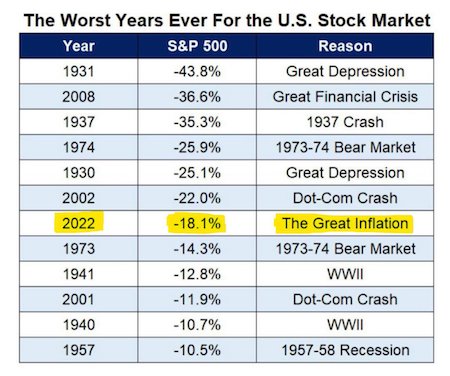

Musk electric planes
https://twitter.com/i/status/1610745168743006209

Tiger spoons
Sculpture made of spoons and forks. WOW pic.twitter.com/qsZu79sE7E
— Figen (@TheFigen_) January 4, 2023

Sunfish
The ocean sunfish is the world's heaviest known bony fish: it reaches up to 2,300 kg of weight & 4.2 meters of size across the fins
[read more: https://t.co/Q3q2LQouPN]
[video: https://t.co/Y7b66SrkLA]pic.twitter.com/IgyJvA3reX— Massimo (@Rainmaker1973) January 4, 2023

Octopus
When marine biologist Roger Hanlon caught this creature on camera, he said he screamed bloody murder. And no wonder. A superb visualization of how chromatophores allow an octopus to blend in with the backdrops
[source, read more: https://t.co/Vp1Uxhq0He]pic.twitter.com/1bp6cWouSN
— Massimo (@Rainmaker1973) January 4, 2023

Samoyed
Samoyed, in its natural habitat pic.twitter.com/Wal3TLVP8V
— Heckin Good Dogs (@HeckinGoodDogs) January 4, 2023


Support the Automatic Earth in virustime with Paypal, Bitcoin and Patreon.










